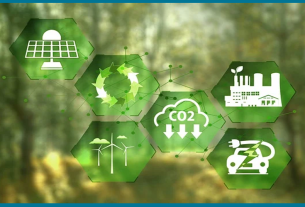Authors Jaime Coon and Nathan Alexander reflect on their recent perspective piece that discusses LGBTQ+ inclusion during ecological fieldwork, with recommendations for individuals, mentors, and institutions.
All field ecologists have stories involving adventure, creative solutions to unexpected problems, challenging environmental conditions, truck failures, or insect infestations in the fieldhouse. But for ecologists from marginalized groups, field stories shared among community members can also be a mechanism for transmitting identity-based resilience strategies. This can include how to find community in rural areas safely, how to feel connected to community when isolated, or safety measures from lived experience.
As queer field scientists, we have shared many of these strategies with each other over the years. When we decided to write on the topic of LGBTQ+ inclusion in fieldwork, we hoped to make advice available to early-career individuals with less access to LGBTQ+ mentorship within ecology. In addition, we hoped to expand the conversation on advocacy beyond interpersonal strategies, highlighting structural barriers and survival needs that can be addressed by mentors and institutions.
Stories of Marginalization
We knew through our stories and those from friends and mentees that, like other marginalized groups, LGBTQ+ individuals face unique challenges in field ecology. These barriers include:
- Increased risk for violence both within and outside the field team.
- Unmet refrigeration needs for gender-affirming medications.
- Inaccessibility of gender-inclusive field housing and bathrooms.
Cis/heteronormativity is a socio-cultural barrier to inclusion in the field. This is the pervasive cultural norm that pressures individuals to conform to heterosexual and cisgender expectations, which can be especially strong in rural fieldwork locations. Cis/heteronormativity can result in:
- Feeling unwelcome in a group due to use of incorrect pronouns (a type of misgendering).
- Increased rates of harassment and violence for individuals who do not conform to cis/heterosexual expectations.
- The mental and emotional burden of ‘coming out’ decisions, which involves weighing mental health and safety considerations.
These barriers and risks combine with or increase discrimination based in other elements of identity, including race, ethnicity, and disability.

Institutional Change
Institutions and mentors can create inclusive environments for LGBTQ+ ecologists through structural support that reconciles historic exclusion of LGBTQ+ people. This includes:
- Creating comprehensive fieldwork protocol and safety plans and gender-inclusive housing and bathroom policies.
- Assisting with paperwork and medication transfers.
- Purchasing size-inclusive gear.
- Ensuring medical insurance includes gender affirming healthcare.
Institutions and mentors should also be aware and communicate discriminatory or oppressive laws or attitudes at fieldwork sites prior to travel.

Interpersonal Change
There are also ways to support LGBTQ+ people on an interpersonal level. We ask that cis/heterosexual peers and mentors:
- Learn how to combat the pervasive and harmful effects of cis/heteronormativity.
- Be vocal in their advocacy for the LGBTQ+ community.
- Work to create supportive and welcoming field teams that affirm identities.
- Respect identity disclosure decisions by LGBTQ+ individuals, who are navigating sometimes conflicting survival and mental health concerns.
Importantly, we ask that institutions and mentors act proactively, in consultation with marginalized groups, as they work toward field experiences that are safe and inclusive, especially for individuals with multiple intersecting marginalized identities.

Personal Strategies
Our author team also created a list of personal resilience strategies that may be useful especially to early-career field ecologists. We recommend that LGBTQ+ individuals:
- Think critically about personal safety, including the role of attitudes and laws.
- Maintain connections to queer community by getting involved in professional organizations or local LGBTQ+ groups, when available.
- Bring a token of queer identity to feel more connected and less isolated (e.g., a copy of A Picture of Dorian Gray for one of our authors).
We acknowledge that navigating career/safety trade offs is often difficult and personal, and so it is important to avoid hard absolutes with recommendations, instead focusing on awareness of risks and making informed decisions.
Sharing Our Stories
Our aim in developing this perspective was to create recommendations based on stories from an author team with diverse experiences. We thus purposefully included people from many different LGBTQ+ identities, career stages (undergraduate to assistant professor) and workplace types (non-academic, predominantly undergraduate, and research-focused institutions), disciplinary backgrounds (ecology, conservation, social-psychology, educational leadership, and Black queer feminism), paying attention to intersections with race and disability.
As a team, we would like to acknowledge that this work is just one step down a path started by others, and we look forward to more recommendations, solutions, and actions that increase inclusivity and accessibility within this field. And to early-career field ecologists who are LGBTQ+: We want you to know that you belong in ecology, we are grateful you are here, and progress is happening. We can’t wait to hear your stories of adventure and fun in the field.

